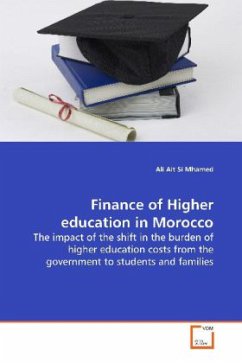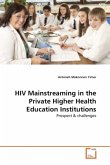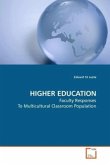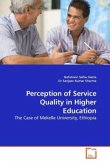This project focuses on the public university
education in Morocco after the shift in the burden
of higher education costs from the government or the
taxpayer to parents and students. This shift has led
to an increase in cost sharing in higher
education in Morocco. Hence, cost sharing in the
context of Morocco has taken the form of reduction
of need based cost of living stipends and room and
board facilities, as well as freezing the amount of
the stipends. Using a mixed methodology of
quantitative and qualitative analysis, the project
investigates the impact of the policy of shifting
the burden of the shift of costs on students and
parents. The study concludes with investigating a
few problems inferred from data, and recommends a
long term plan in reforming student financial aid
and implementing student loans program and tuition
fees in order to diversify the governmental revenue
and improve the quality and equity of tertiary
higher education in Morocco.
education in Morocco after the shift in the burden
of higher education costs from the government or the
taxpayer to parents and students. This shift has led
to an increase in cost sharing in higher
education in Morocco. Hence, cost sharing in the
context of Morocco has taken the form of reduction
of need based cost of living stipends and room and
board facilities, as well as freezing the amount of
the stipends. Using a mixed methodology of
quantitative and qualitative analysis, the project
investigates the impact of the policy of shifting
the burden of the shift of costs on students and
parents. The study concludes with investigating a
few problems inferred from data, and recommends a
long term plan in reforming student financial aid
and implementing student loans program and tuition
fees in order to diversify the governmental revenue
and improve the quality and equity of tertiary
higher education in Morocco.








